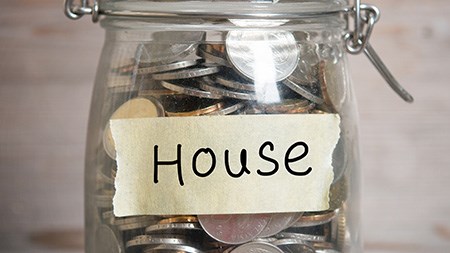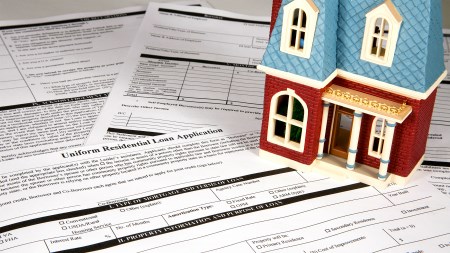Buying your first property is a process that can be fraught with confusion. This simple list will set you on the path to home ownership.
1. Save up for a deposit
Banks are far more likely to approve your home loan if you have a deposit saved up. So as soon as you start considering house hunting (and preferably before), start putting away that extra cash. “Having a deposit saved up means that the bank doesn’t have to take all the risk on your property, so of course they’ll be more likely to approve your bond,” says Jenny Rushin, provincial sales manager at ooba, Western Cape. “Being strict about putting money away before you buy a home is also good practice for repaying your bond later.”
2. Manage your existing credit
Your credit record is your most valuable asset when applying for a home loan. This means that you should have a record of paying back credit responsibly. “Sadly, the banks won’t grant you a large credit amount until you’ve shown that you can be responsible with paying back smaller amounts, so get yourself a credit card, a store card or a bank loan and pay the installments on time,” says Rushin.
3. Get your paperwork in order
The banks will require three months of your most recent bank statements, a pay slip, your ID and a proof of residence. You will also be required to fill out a document showing your income and expenditure. “Make sure you have a copy of all of these documents readily available for when you find that perfect home,” says Rushin.
4. Work out how much you can afford
Rushin explains that a bank will work out your affordability based on your disposable income after deductions and expenses, but will not grant you a home loan for which the repayments are more than 30% of your gross monthly income. This can be mindboggling maths, so she advises using an affordability calculator like the one found here to work out your maximum home loan.
5. Be realistic
Take a long, hard look at your lifestyle and make a list of the factors that will suit your needs. If you travel a lot, don’t buy a house with a big garden that requires lots of maintenance. If you’re going to be living alone, buy a smaller apartment in a better area. If you’re thinking of getting married and having kids in the next few years, buy an affordable house with an extra room, rather than an expensive apartment in the heart of the city.
“Buying for the long term means that you won’t have to go through the stress of house hunting and the expense of transfer again too soon,” says Rushin. “Even though it’s important to get a foothold on the property ladder as soon as you can, think strategically to make sure you’re making the right purchase.”
6. Run a credit check before you start
Rushin explains that some companies or individuals don’t follow the proper procedures for a blacklisting, so the first time many people find out that they’ve been blacklisted is when they apply for credit. “Every South African is entitled to a free credit check once a year, so find out what your credit rating looks like before you’ve made an offer on a home, when there’s still time to do something about it,” she says.
7. Do a lot of hunting before you buy
Start house hunting a while before you actually need to buy to give yourself a sense of what you can afford and what compromises you might have to make. Use a comprehensive website, such as Privateproperty.co.za to get started and check out your options, then start going to show days. Educating yourself in this way means that when you see your dream home, you’ll know if it’s too good to be true or the real deal.
“Houses are as varied as the people who live in them,” explains Rushin. “You might have a very specific set of needs, but then find out that you’re unlikely to find a house that has everything you’re after. In the process, you might become aware of what else is important or what you can do without, so start looking early.”
8. Don’t lose hope
Buying a home – especially in the first-time buyer bracket – can be a little disheartening when you work out how much money you are going to have to spend and what you can actually get for that. Don’t ever buy out of desperation, but rather wait for the right thing to come along. “There’s something out there for everyone,” says Rushin. “Something will come along that suits your tastes and your budget, so don’t lose heart, and happy hunting.”
9. Apply to multiple banks for your home loan
Each bank has its own specific set of lending criteria. To improve your chances of getting your home loan approved in time, and of getting the best interest rate, submit your application to as many banks as possible at the same time. The latest ooba statistics show that 28.7% of ooba’s applications that were declined by one bank were approved by another.
10. Use an expert originator to get you the best deal on your home loan
Getting a home loan approved involves lots of paperwork, some of which can be very confusing. It gets even more complicated if you take the advice above and apply to more than one bank. Because of this, it’s a good idea to use the services of an expert originator, like ooba, to submit your application to multiple banks.
“To get your application presented in the best possible light and to avoid filling out the paperwork more than once, use a bond originator like ooba who will do this for you, for free,” suggests Rushin.
ooba currently gets 74% of the home loans it facilitates approved. The national average bank approval rate is 54%, which means that you have a 37% better chance of approval if you go through ooba.




